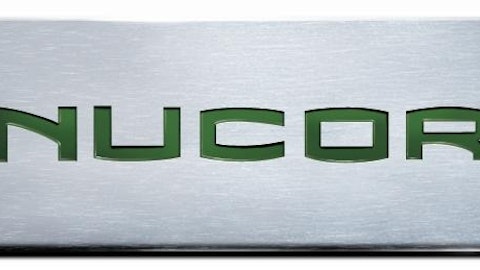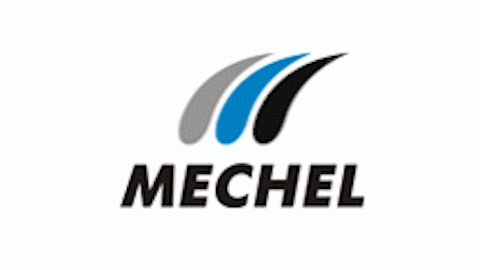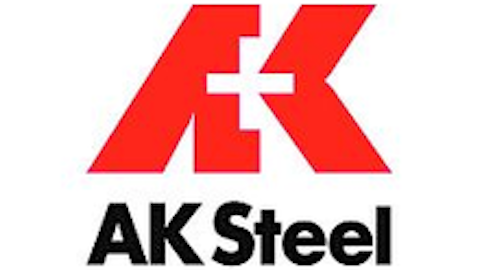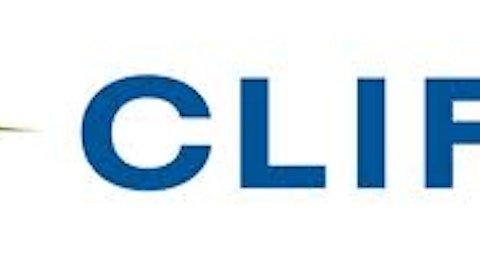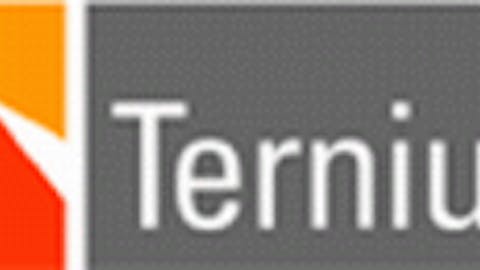With rising interest rates the subject of many financial headlines lately, there are many fears from investors, both justified and not. To change gears a bit, let’s explore one industry that actually stands to benefit considerably from rising rates. I’m talking about the steel industry and related materials companies, which have been some of the market’s worst performers of 2013. Interest rates have the potential to help these companies stop hemorrhaging money on their pension obligations, which have been a major contributor to the lack of profitability seen in these companies.

While pension problems are plaguing most of the materials sector, let’s take a look at a few that stand to benefit tremendously should their pension obligations ease. First, United States Steel Corporation (NYSE:X) is one very good example, with a pension plan that is underfunded by an estimated $2.7 billion as of the end of the last fiscal year, as compared to just a $381 million deficit in 2004. Bear in mind that the entire market cap of U.S. Steel is $2.7 billion, the same as their underfunded obligations. While U.S. Steel has more problems than just this, such as oversupply problems in the industry and a big management change, the pension problem alone could provide tremendous relief, as we’ll see later on.
AK Steel Holding Corporation (NYSE:AKS) has an even more daunting task ahead of them when it comes to meeting its obligations. This smaller company, with a market cap of less than half a billion dollars, has to come out of pocket for its $180 million pension shortfall this year. If rates stay the same, the company is estimating $240 million in pension obligations for next year, but a drastic fall is anticipated afterwards, as the company stopped accepting new members into its program some time ago.
Just to put the numbers in perspective, not having to pay $180 million toward pension contributions this year would make the difference between a loss of $0.51 per share (as expected) and a profit of $0.81 per share, even if nothing else changed fundamentally for the company.
As a counterexample, Nucor Corporation (NYSE:NUE), the largest U.S.-based steel producer, is a shining example of what a difference not having these kinds of obligations can make. The first big difference is that none of Nucor’s plants are unionized, and the company has actually stated that unions are a destructive force in the industry. The company also has a performance-based compensation plan including profit sharing and a 401k (no pension at all!).
As a result of this philosophy, Nucor Corporation (NYSE:NUE) hasn’t laid off an employee for financial reasons in over 30 years. Nucor has remained a profitable company, even with all of the oversupply and other fundamental issues plaguing the industry. Take a look at the earnings of these three companies over recent years.

Data from Capital IQ
Other than 2009, Nucor Corporation (NYSE:NUE) has been profitable every single year of the past decade. The other two have seen their profitability plummet in the low-rate environment of the past few years. However, if rates were to rise, the glory days could return for these companies.
Pension funding in a nutshell
When you hear that a company has an “underfunded” pension plan, or is expected to have increased pension obligations going forward, what does that mean? Aren’t pension obligations predictable? Well, not really.
In general, employees contribute a certain amount of money out of their salary into a pension fund, and have a defined amount of money they can expect to receive, in perpetuity, after they retire. However, the pension benefits for the average worker are much higher that the dollar amount each worker contributes into the fund. Therefore, the company has two ways to make up the difference. They can either pay the difference out of their own pocket, or they can invest the pension contributions in order to grow the employee’s contributions enough to meet the eventual pension requirements (the more preferable option).
Why interest rates matter
Companies invest their pension funds (usually) in a low-risk portfolio of investment-grade corporate bonds. As interest rates fall, or remain at historically low levels like they have over the past few years, the higher the shortfall between the growth of the pension fund and the obligations the pension fund has to pay. When this happens (a shortfall), companies need to go into their own pockets to make up the difference.
Potential effect on profitability
As just one example, United States Steel Corporation (NYSE:X) told its shareholders that just a 1% rise in interest rates would reduce the company’s long-term total pension obligations of $11.3 billion by about $1.4 billion, a 12.4% reduction. It would also reduce the amount the company has to pay out of pocket by about $50 million annually. This would be a very big deal for a company of this size. U.S. Steel is projected to post a loss of $1.32 per share for fiscal year 2013, or a total loss of about $191 million.
In a more positive context, U.S. Steel is expected to post a profit of $0.98 per share according to the consensus; however given the recent spike in rates I think this estimate may be a little low. A 1% rise in interest rates would increase U.S. Steel’s profitability next year by more than 35%. The effect would be even more profound if the rise in rates is more than 1% (which is looking more and more probable).
The situation is the same for other companies as well. AK Steel Holding Corporation (NYSE:AKS) has estimated that for every 25 bps (0.25%) rise in interest rates, their total pension liabilities will fall by $75 million). AK Steel has other issues holding down their share price, such as higher materials and production costs than some of their bigger rivals, but having to pay less into their pension fund would certainly help.
Which to choose?
While Nucor Corporation (NYSE:NUE) is certainly the most stable and safe option, the other two stand to gain the most from a rising interest rate environment. Of the two, United States Steel Corporation (NYSE:X) is the safer option, and the effects of how much rates have risen already should be apparent on the company’s next quarterly report in late October. If you believe that the days of record low interest rates are soon to be behind us, the steel companies with pension issues may be worth a look now.
The article A Great Play on Rising Interest Rates originally appeared on Fool.com and is written by Matthew Frankel.
Matthew Frankel owns shares of AK Steel Holding (NYSE:AKS) and United States Steel (NYSE:X).. The Motley Fool recommends Nucor.
Copyright © 1995 – 2013 The Motley Fool, LLC. All rights reserved. The Motley Fool has a disclosure policy.
